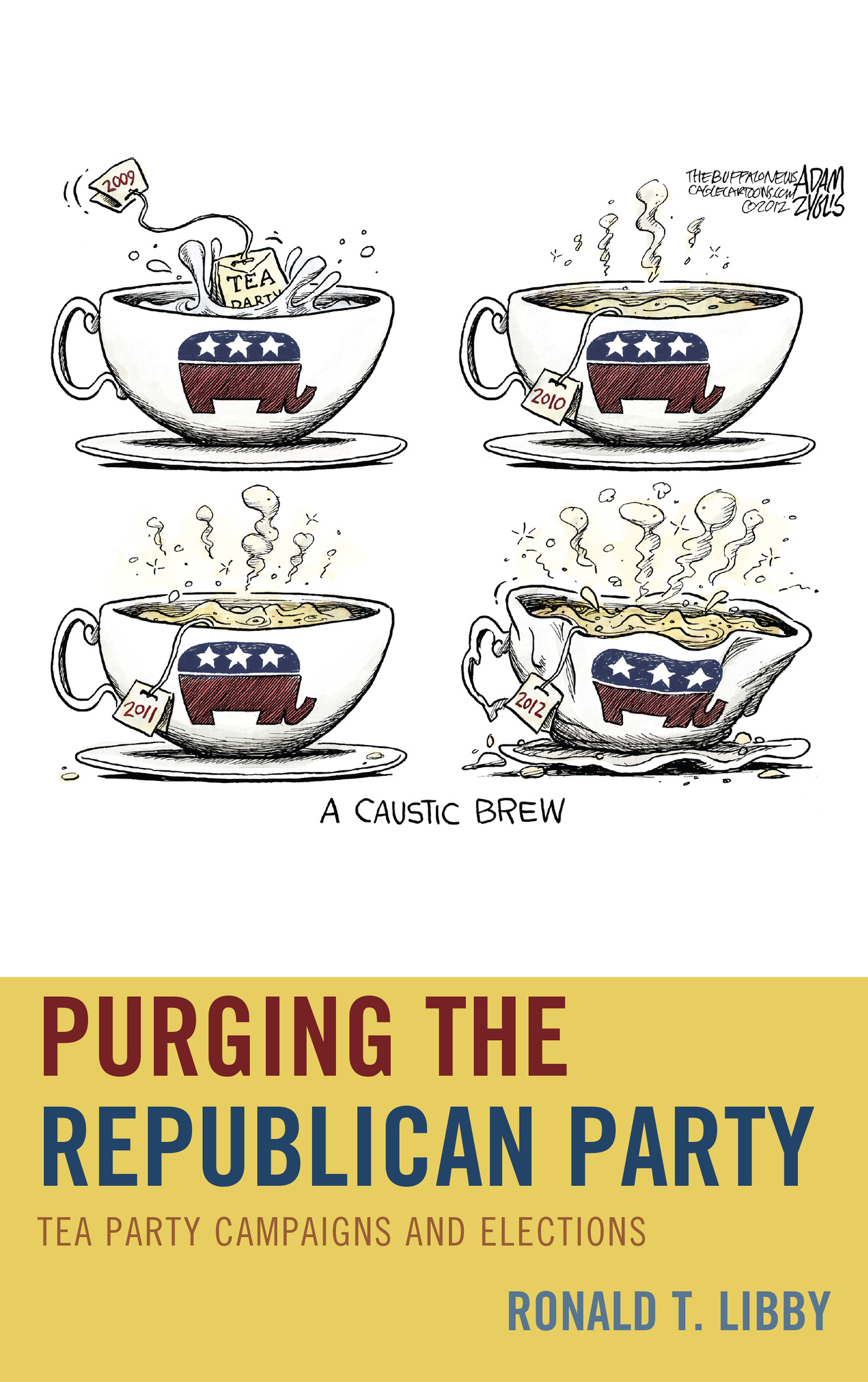Purging the Republican Party
Purging the Republican Party
Tea Party Campaigns and Elections
Ronald T. Libby
LEXINGTON BOOKS
Lanham Boulder New York London
Published by Lexington Books
An imprint of Rowman & Littlefield
4501 Forbes Boulevard, Suite 200, Lanham, Maryland 20706
www.rowman.com
Unit A, Whitacre Mews, 26-34 Stannary Street, London SE11 4AB
Copyright 2014 by Lexington Books
First paperback edition 2015
All rights reserved. No part of this book may be reproduced in any form or by any electronic or mechanical means, including information storage and retrieval systems, without written permission from the publisher, except by a reviewer who may quote passages in a review.
British Library Cataloguing in Publication Information Available
Library of Congress Cataloging-in-Publication Data
The hardback edition of this book was previously cataloged by the Library of Congress as follows:
Libby, Ronald T.
Purging the Republican party : Tea Party campaigns and elections / Ronald T. Libby.
pages cm.
Includes bibliographical references and index.
1. Republican Party (U.S. : 1854- ) 2. Tea Party movement. 3. Elections--United States. 4. United States--Politics and government. I. Title.
JK2356.L73 2013
324.2734--dc23
2013032404
ISBN 978-0-7391-8763-0 (cloth : alk. paper)
ISBN 978-1-4985-2134-5 (pbk. : alk. paper)
ISBN 978-0-7391-8764-7 (electronic)
 TM The paper used in this publication meets the minimum requirements of American National Standard for Information Sciences Permanence of Paper for Printed Library Materials, ANSI/NISO Z39.48-1992.
TM The paper used in this publication meets the minimum requirements of American National Standard for Information Sciences Permanence of Paper for Printed Library Materials, ANSI/NISO Z39.48-1992.
Printed in the United States of America
Democracy is two wolves and a lamb voting on what to have for lunch. Liberty is a well-armed lamb contesting the vote!
Benjamin Franklin
Preface
Americans are only beginning to understand the Tea Party. In one of the few attempts to explain it, Theda Skocpol and Vanessa Williamson in The Tea Party and the Remaking of the Republican Conservatism, acknowledge that the Tea Party is a model of active citizenship and a wonderful development for anyone who cares about citizen involvement in U.S. politics.
So far so good; however, the authors go on to express concern about the impact that the Tea Party has had on America. This concern is ostensibly based upon interviews of Tea Party activists who attended meetings. However, the number of interviews of Tea Partiers is not reported except to say that they were obtained during three meetings the authors attended in Brockton, Massachusetts; Charlottesville, Virginia; and Tempe, Arizona. For example, the Bay State Tea Partiers meeting on March 23, 2010 in Brockton, Massachusetts had about forty members in attendance, the Jefferson Area Tea Party Patriots meeting on February 24, 2011 in Charlottesville had about fifty members, and on March 16, 2011, there were an unreported number of the Pink Slip Patriots who met in Tempe, Arizona.
Based upon a handful of interviews, therefore, the authors conclude that the Tea Party is not in touch with reality, is intolerant, and even cruel. Without attribution, they claim that activists told them the Affordable Care Act of 2010 included death panels and abolished Medicare. Tea Partiers also reportedly made negative stereotypical comments about Muslim-Americans, African-American and Latino rights groups, teachers, immigrants, and young people by referring to them as freeloaders or threats to the nation. Tea Partiers reportedly referred to union leaders such as Andy Stern of the Service Employees International Union (SEIU) as a Communist.
The problem with these unattributed comments by those attending Tea Party meetings is that the Tea Party is comprised of millions of volunteers and anyone can attend their meetings. There is no formal membership in the Tea Party. As is the case with any grassroots movement, participation at Tea Party meetings is spontaneous and anyone can turn up at their meetings. In other words, no single person or group of people who attend Tea Party meetings speak for the entire movement. There is no membership or attendance list for any Tea Party meeting. They are all volunteers and their meetings and rallies are based upon anyone who happens to turn up on any given day. Even the leaders and organizers are unpaid volunteers who are in constant flux depending upon who has the time and interest in a particular issue.
The authors negative, stereotypical view of the Tea Party is therefore based upon an undocumented and unscientific sample of unknown participants who reportedly attended a handful of Tea Party meetings. Based upon this and secondary media reports and Internet posts gathered from unknown Tea Party websites and news accounts, the authors conclude that the entire movement (including thousands of Tea Party organizations and millions of grassroots activists throughout the country) are uninformed and bigoted. The authors rhetorically ask is the Tea Party good for American democracy. Predictably, their answer is that the Tea Party is not good for America. Without offering any proof, they assert that the Tea Party has increased societal tensions, polarized the country, made younger groups suffer because of GOP budget cutbacks, and enabled super-rich fat cats to profit at the publics expense. Indeed, the authors fail to explain the relationship between the Republican Party and the Tea Party.
The Contribution of the Book
This book is designed to explain how the Tea Party was born and how it grew from a popular grassroots movement into a political force in American politics. The Tea Partys agenda is contained in the Contract From America. This ten point proclamation was an outgrowth of the imagination of a young, Jewish attorney living in TexasRyan Hecker. Hecker had no previous political experience or outside support, but he was able to carry out a virtual democratic election process involving hundreds of thousands of Tea Party activists to develop the guiding principles of the Tea Party in order to mobilize the movement into political action. The inspiration for Heckers contract was Newt Gingrichs 1994 Contract for America; however, instead of the principles being developed by Republican Party elites, Heckers Contract From America came from grassroots Tea Party activists themselves.
The book explains the origin, evolution, and transformation of this extraordinary grassroots protest movement into a powerful political force in American politics. It discusses the Tea Partys Libertarian political doctrine that was elaborated by Ron Paul. The doctrine profoundly influenced the Tea Partys Constitutionally limited government philosophy. It explains how the elements of the Contract are used in Tea Party campaigns. The Contract has not only become the guiding principle of the Tea Party movement but all Tea Party-endorsed candidates for office are pressured to sign the Contract if they hope to receive grassroots support in Republican primary elections. In 2012, over 600 Tea Party candidates signed the Contract.
The second contribution of the book is an explanation of how the Tea Party conducts election campaigns and how it has defeated Republican incumbents who do not support the principles of the Contract. The campaigns are typically carried out without outside financial support and in opposition to GOP-endorsed candidates. Grassroots Tea Party leaders carry out the campaigns. Contrary to the conventional wisdom that the Tea Party is a grassroots organization without leadership, leaders have in fact emerged and transformed the movement into a potent campaign organization throughout the country with capable and pragmatic leadership.
Next page
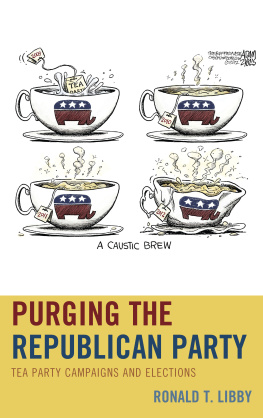
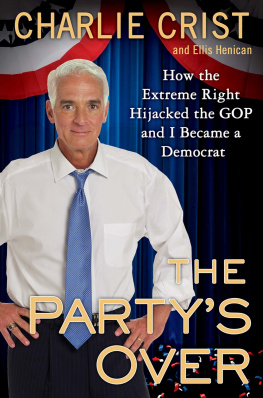
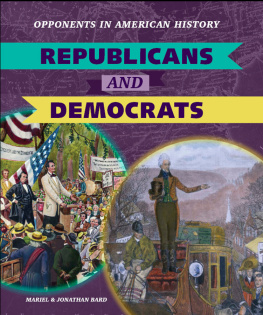

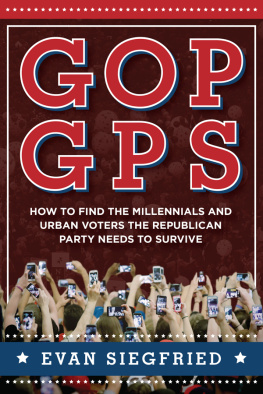
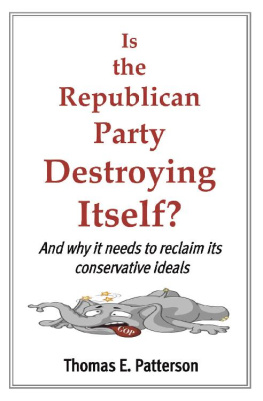
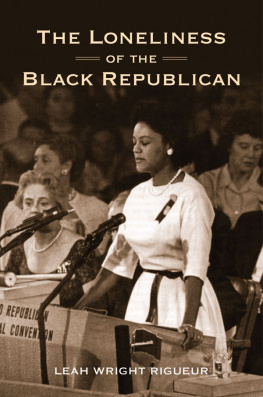
 TM The paper used in this publication meets the minimum requirements of American National Standard for Information Sciences Permanence of Paper for Printed Library Materials, ANSI/NISO Z39.48-1992.
TM The paper used in this publication meets the minimum requirements of American National Standard for Information Sciences Permanence of Paper for Printed Library Materials, ANSI/NISO Z39.48-1992.